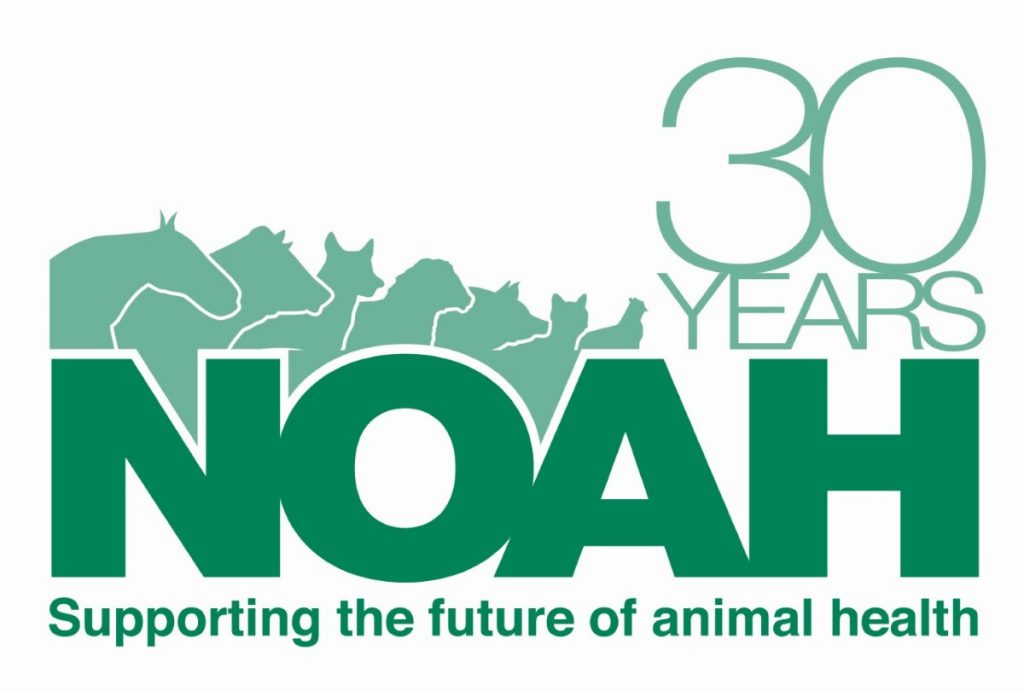Today’s publication of ‘Tackling Drug Resistant Infections Globally: Final Report and Recommendations’, by Lord Jim O’Neill, is a global landmark in the fight to keep antibiotics effective for both animals and people, says NOAH, which represents the UK animal medicines sector.
NOAH Chief Executive Dawn Howard says: “We endorse the proposal for incentives to develop innovative new treatments and better diagnostics: these must include the veterinary sector, so that animal medicines are available to treat the diseases that vets and farmers encounter. Improving the availability and uptake of vaccines, which is also proposed, can reduce the need for antibiotics. Veterinary surgeons need access to a range of medicines, including antibiotics, in order to treat the conditions and species under their care and support the high standards of animal welfare our society expects.
“The Report’s call for improved surveillance will build on work already being undertaken within the different livestock sectors, for example in the UK poultry and pig sectors. Targets to reduce antibiotic use must be based on an understanding of why and where antibiotics are currently used, and we welcome the Report’s suggestion that careful consideration must be given to how any target setting will be done. Once the facts have been established, resources can then be focussed on areas where change is most needed to reduce any unnecessary use.
“It is important to remember that in the UK – and indeed throughout the EU, veterinary antibiotics are only available on veterinary prescription and have been banned as growth promoters since 2006,” she adds.
The Report recommends restrictions on certain antibiotics for veterinary use. “NOAH believes that any such decisions must be based on independent regulatory officials’ expert opinions and must follow the agreed regulatory process – such as the recent EMA (European Medicines Agency) re-evaluation of the veterinary use of colistin,” Dawn Howard says.
“Any changes need to be given a realistic timeframe in order that animal welfare is not compromised – something the report itself acknowledges,” she adds.
“We also fully support the Report’s call for a global public awareness campaign of this ‘One Health’ issue involving both human and animal health to improve understanding and compliance. This is a global report for a global problem, with practical recommendations and calls to action, both on the international stage and here in the UK.”
Dawn Howard concludes: “The UK animal medicines sector looks forward to its role in implementing the Report’s recommendations by being part of the collaboration between UK government and industry, to develop practical proposals so that antibiotics remain effective to protect the health of people and animals into the future.”
Notes for Editors
For more information please contact Dawn Howard, Donal Murphy or Alison Glennon at NOAH on 020 8367 3131
The National Office of Animal Health represents the UK animal medicines industry. Its aim is to promote the benefits of safe, effective, quality medicines for the health and welfare of all animals
NOAH will be producing a more detailed analysis of the Report in due course
NOAH has previously commented on the Antibiotics in Agriculture section of the Report, including a joint critique with IFAH-Europe and HealthforAnimals who respectively represent the European and global animal health industries The critique is available at http://www.noah.co.uk/papers/Critique%20ONeill%20Report%20Final.pdf
The EMA updated advice on the use of the antibiotic colistin is available here: http://www.ema.europa.eu/ema/index.jsp?curl=pages/regulation/general/general_content_000639.jsp&mid=WC0b01ac058080a585





-01.png)